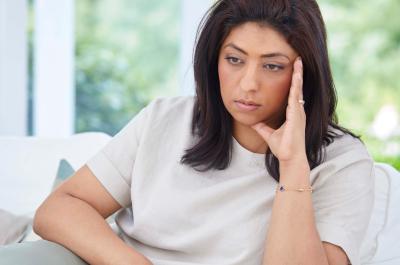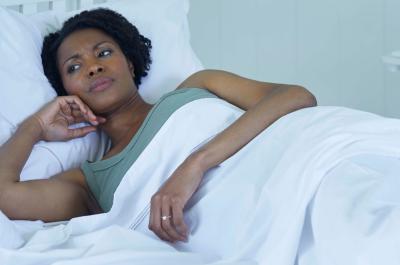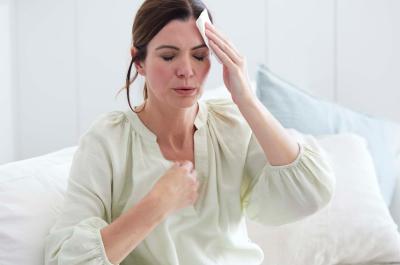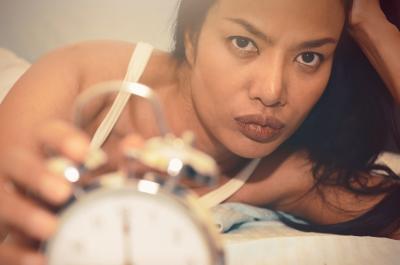
You’ve probably heard that menopause can affect your sex life. Some research has found that menopause can lower libido (sex drive) and make arousal more difficult. As you approach menopause, your ovaries produce less and less of the sex hormones estrogen, testosterone and progesterone, so there are going to be a few things that can affect your sex life.
You might notice your sex drive is much lower, or, you may have uncomfortable symptoms, like vaginal dryness, that put you off sex entirely. However, there some things you can do to help manage these symptoms, so your sex life doesn’t have to come to a crashing halt just because you are approaching menopause. Read on to learn more.
Changes in sex drive
It’s perfectly normal to notice you have a lower sex drive in your 40s and 50s, but it’s also possible that your sex drive may not change at all. In fact, some women notice they have more interest in sex or feel no different.1 This drop in sexual desire can happen to both men and women with age however, the hormone changes associated with the menopause transition can also have a major influence. Particularly the subtle fall in testosterone, the main hormone which fuels your sex drive2 (and yes, women also have a little of this male sex hormone).
However, it is possible that you may experience declining sexual interest for other reasons. A drop in estrogen may lead to vaginal dryness, which can make sex physically uncomfortable or even painful. Hot flashes and night sweats may keep you awake at night, so you’re left with little to no energy the next day and sex is the last thing on your mind.
Vaginal dryness and pain during sex
Vaginal dryness can be a common symptom of menopause, and around half of menopausal women suffer from vaginal dryness and painful intercourse.3 Estrogen helps keep your vagina lubricated, as well as maintain the thickness and elasticity of the vaginal walls. As estrogen levels decrease, this can cause the vaginal walls to become thin, dry, and inflamed.4
Vaginal dryness is common after menopause, but you may notice it during perimenopause (the years leading up to menopause) as well.
Managing sexual symptoms of menopause
Vaginal dryness and pain during sex are physical problems which can usually be managed easily. For example, you could use a vaginal lubricant if you find sex uncomfortable, or use a vaginal moisturizer to help with the itchiness down there due to dryness. Some healthcare professionals may prescribe you some kind of hormonal treatment, like creams with estrogen or vaginal rings that release a low dose of estrogen.
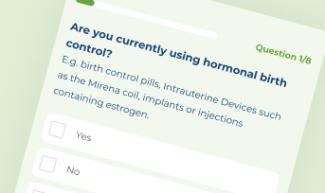
Is Clearblue® Menopause Stage Indicator right for me?
Take our simple quiz to find out!
But, because every woman is different, hormonal treatment may not be the best option for you, and you may want to have a conversation with your healthcare professional about your options to find the best treatment.
Sources :
- https://www.womenshealth.gov/menopause/menopause-and-sexuality
- Schwenkhagen A. Hormonal changes in menopause and implications on sexual health. J Sex Med. 2007 Mar;4 Suppl 3:220-6. doi: 10.1111/j.1743-6109.2007.00448.x. PMID: 17394594.
- Mitchell CM, Reed SD, Diem S, et al. Efficacy of Vaginal Estradiol or Vaginal Moisturizer vs Placebo for Treating Postmenopausal Vulvovaginal Symptoms: A Randomized Clinical Trial. JAMA Intern Med. 2018;178(5):681–690. doi:10.1001/jamainternmed.2018.0116
- https://www.acog.org/womens-health/experts-and-stories/the-latest/experiencing-vaginal-dryness-heres-what-you-need-to-know

Know more about the menopause journey
Download the Menopause Stage - Clearblue® me app to access relevant educational content, track your symptoms & periods

